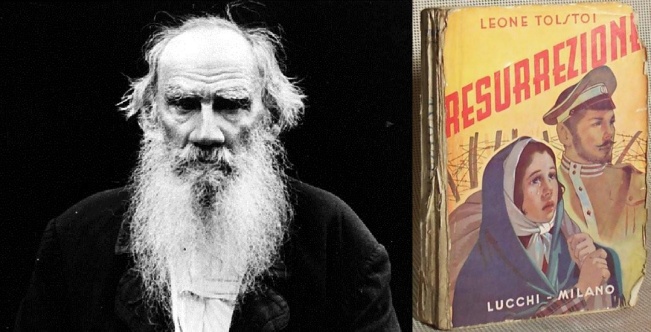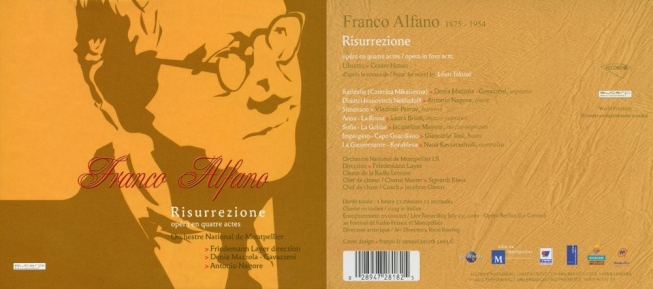The curse of Turandot! No, not a plot twist in the famous Puccini opera which nobody has noticed yet but the legacy bequeath to Franco Alfano, the composer commissioned to completed the work Puccini left unfinished when he died in 1924. A number of composers were considered for the task of completing Turandot and Puccini even nominated his own candidate before he died, but the dubious honour fell to Alfano. Despite a very productive musical career that spanned over 50 years as composer and teacher which included 13 operas it is for completing Turandot that Alfano is best remembered today.
Born in Naples in 1875 and considered one of Italy’s ‘Giovane Scuola’ Alfano who was initially hoping to be a concert pianist left Italy to study in Leipzig before returning to Italy and taking up teaching posts in Bologna, Turin, Pesaro and eventually Rome. Not from a rich family and having no patron teaching was the only way Alfano could support himself as a composer.

Leo Tolstoy and an Italian edition of his last great novel Risurrezione.
This years Wexford Festival Opera continuing its tradition of reviving rarely performed works will feature a performance of Alfano’s early opera Risurrezione. Written in 1904 it is based on the novel of the same name by Leo Tolstoy.
Prince Dmitri seduces Katiusha before leaving to join the army. Katiusha who is now pregnant with his child waits for Dmitri’s return but when he does and she sees him with a prostitute she is too afraid to approach him. She falls on hard times losing her home and her baby and turns herself to a life of prostitution. Being wrongly charged with the murder of one of her clients she is sent to prison in Siberia. Dimity who discovers her predicament and his hand in it is consumed with remorse for how he has treated her and follows her to Siberia. There he uses his influence to obtains a pardon for her but she refuses his repeated offers to marry her despite the deep love she still feels for him.

Franco Alfano and Magda Olivero who sang Katiusha in a 1971 recording in Turin.
Although coming slightly after the high watermark of the verismo operas Risurrezione is written very much in that style. Verismo (realism) operas tend to be based on the real lives of ordinary people and deal with the tragedies and passions of everyday life and tend not to be known for their happy endings. Risurrezione is very much in this genre and sticks fairly close to the often distressing material in the novel though it does feature a relatively happy ending. There are much better known works in the verismo canon not least the famous double act of Cavalleria Rusticana and Pagliacci and if you like the soaring passion filled Italian singing featured in these and many of Puccini’s operas then you will certainly enjoy this. The comparison to some of Puccini’s work is quite striking at times in my opinion.
In his later works Alfano turned away from the verismo style of his earlier years when he came under the influence of the French Impressionists like Debussy and Ravel and his operas La Leggenda di Sakuntula of 1921 and Cirano de Bergerac of 1936 are in this later style.

There are a number of recordings of Risurrezione available and the one I have is a wonderfully well played and sung live recording by the Orchestre National de Montpellier from 2001 with soprano Denia Mazzola-Gavazzeni and tenor Antonio Nagore in the two main roles.
Details of the 2017 Wexford Festival Opera are here
Info on the Orchestre National de Montpellier recording is here
